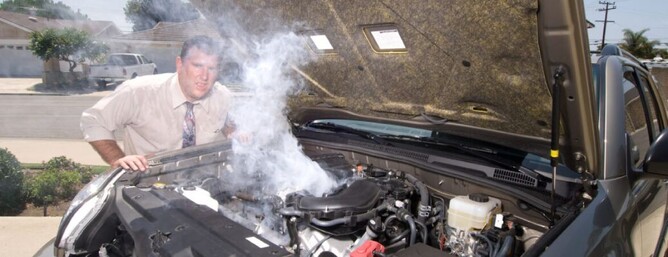An overheating engine is a serious issue that can lead to costly repairs if not addressed quickly. If you notice your temperature gauge rising or steam coming from under the hood, it's important to act fast to prevent engine damage.
Common Causes of Overheating
Low Coolant Levels
Coolant helps regulate engine temperature. Your engine can overheat if it's low due to a leak or evaporation.
Faulty Thermostat
The thermostat controls the coolant flow. If it gets stuck closed, the coolant won't reach the engine, causing overheating.
Malfunctioning Radiator
A clogged or damaged radiator won't cool the engine properly, leading to rising temperatures.
Broken Water Pump
The water pump circulates coolant through the engine. If it fails, overheating can happen quickly.
Cooling Fan Issues
Electric cooling fans help keep the radiator cool. If they stop working, your car may overheat, especially in traffic.
What to Do if Your Car Overheats
Turn off the AC and turn on the heater—this pulls heat away from the engine.
Pull over safely and let the engine cool before opening the hood.
Check coolant levels (if safe) and top up if needed.
Call for assistance if the problem persists—driving an overheating car can cause severe engine damage.
Regular maintenance, such as checking coolant levels and inspecting the cooling system, can help prevent overheating. If your car frequently overheats, have us diagnose and fix the issue before it leads to costly repairs.










